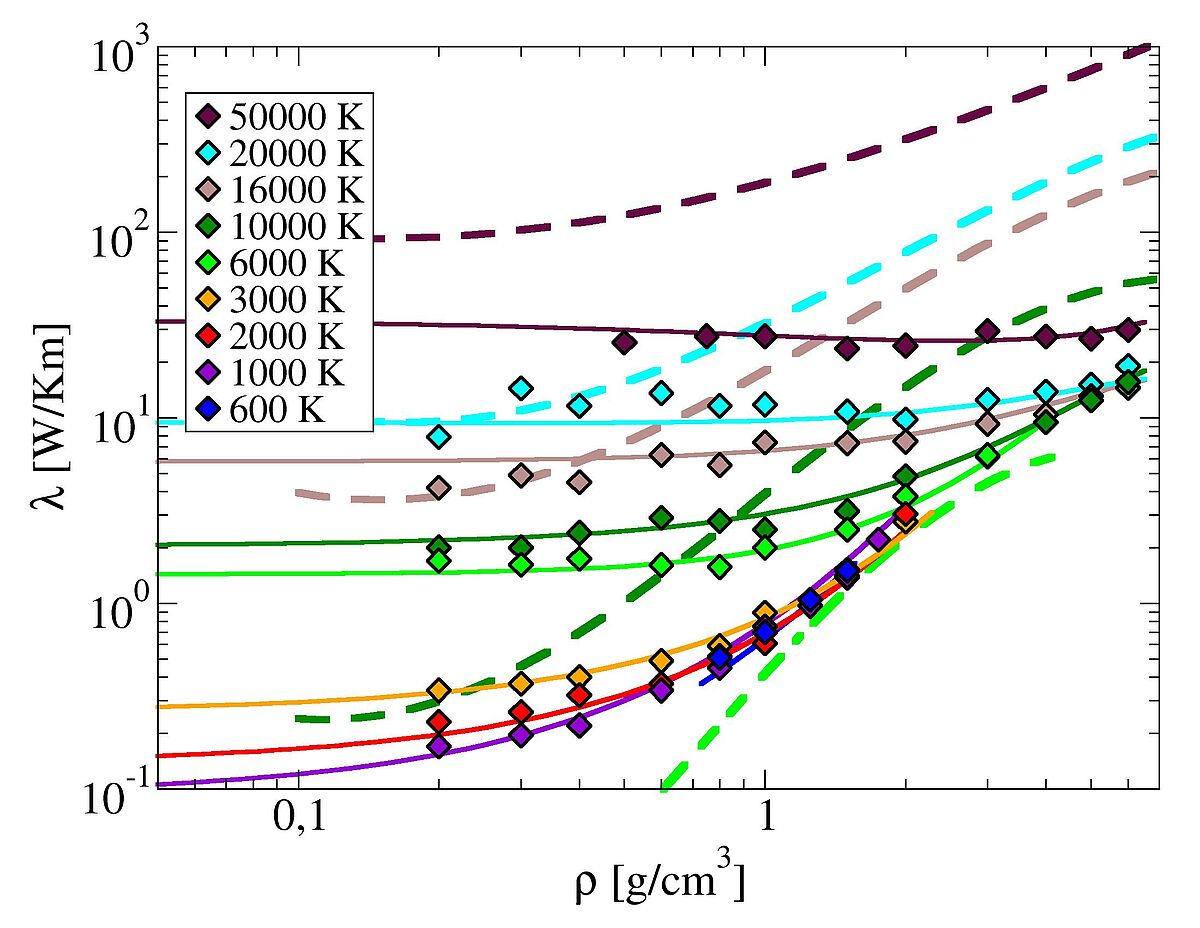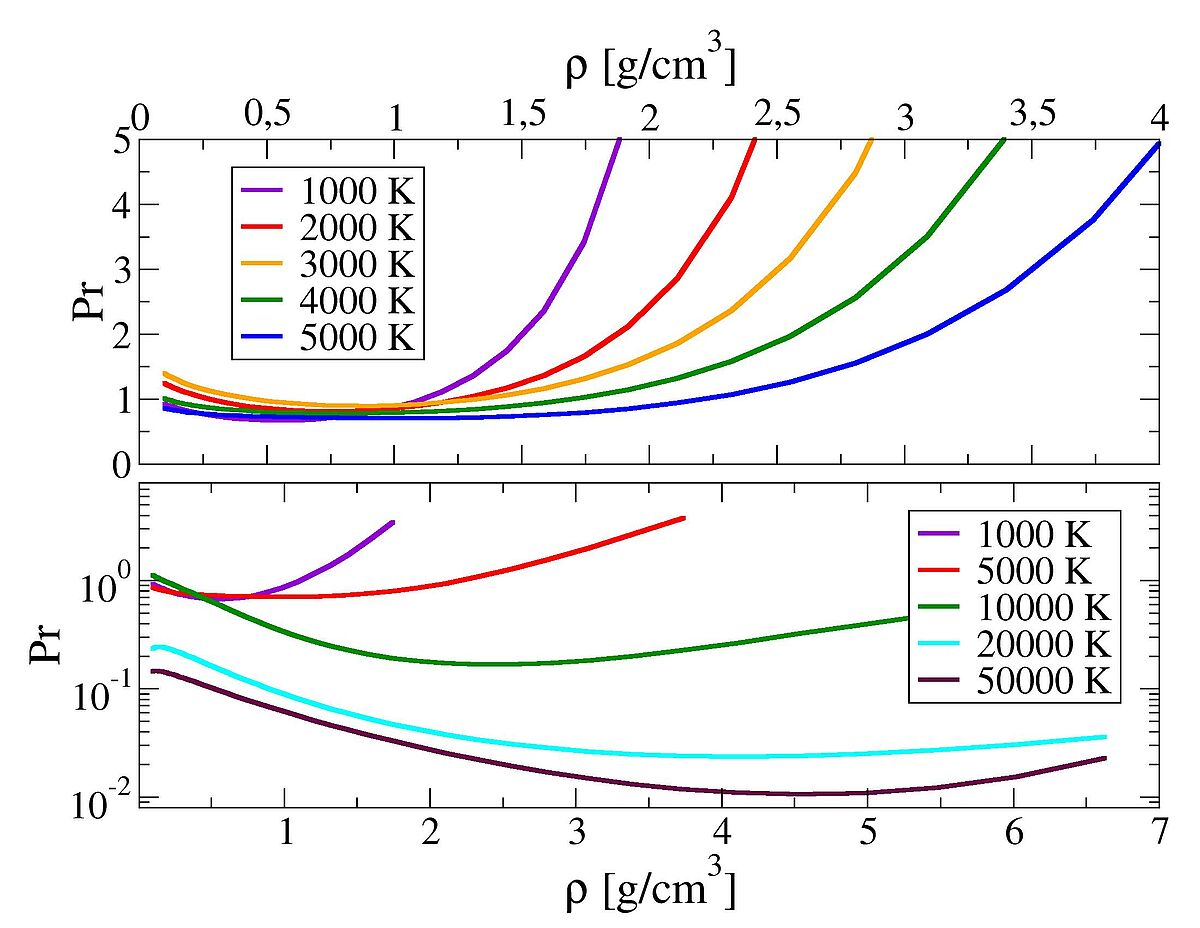Subproject 3: Ab initio simulations for thermophysical properties of molecular HCNO mixtures
PI: M. French
We will calculate thermodynamic and transport properties of various HCNO compounds under extreme conditions of pressure and temperature typical for the interior of Neptune-like planets. Similar as in the subprojects 1 and 2, we will employ state-of-the-art ab initio methods from many-particle physics that are based on density functional theory and molecular dynamics. A primary goal is the generation of equations of state for water, ammonia, methane, and their mixtures. This includes the analytic parametrization of the thermodynamic data in terms of thermodynamic potentials and the calculation of the entropy. The occurrence of dissociation and ionization processes in the fluid as well as the formation of solid and superionic phases or demixing regions will be investigated. Understanding the decomposition of methane into long-chained molecules or pure carbon is of considerable interest. The equations of state calculated here will be directly employed in the modeling of planetary interiors, which is done in other subprojects. Our results will also be compared with the experimental findings from subproject 9. Moreover, we will calculate the diffusion coefficients, viscosities, and thermal conductivities of the HCNO mixtures. The latter is determined both by collisions among the heavy particles and via electronic conduction processes. The ab initio methods employed here allow for a systematic investigation and characterization of such transport processes. The results will be used in the development of novel evolution and layer-formation models for Neptune-like planets in subproject 5.

Contact PI
Dr. Martin French
Universität Rostock, Institut für Physik, 18051 Rostock
Tel. +49 (0)381 498 6918, Email

